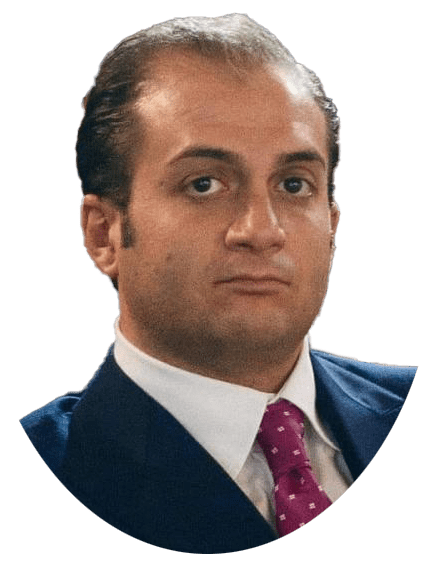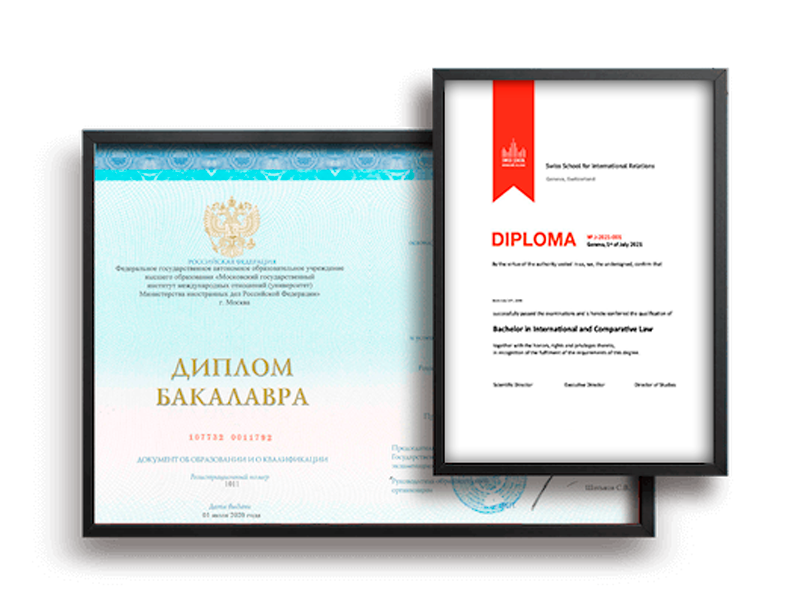
The MGIMO School of Governance and Politics has the mission to train a new generation of managers who are able to work in a highly competitive environment, to speak several languages, to master the skills of strategic, innovative, anti-crisis management and, at the same time, to have a deep understanding of modern political processes in Russia and abroad.
In 2021, together with Swiss School for International Relations (Geneva, Switzerland), we launched a new double degree program «Multilateral Diplomacy» for undergraduate students. It is implemented by the MGIMO School of Governance and Politics as part of the strategic academic leadership program «Priority 2030».

Henry SARDARIAN
Dean of the MGIMO School of Governance and Politics
Doctor of political sciences
Representative of the Russian Federation in the UN Expert Committee on Public Administration

About the Program

The demand is high for international specialists of a new level, capable of solving multilateral and complex tasks in the field of international relations, political science, economics, public administration, law, etc.
The goal of our program is to train international civil servants, diplomats, and functionaries of international organizations and diplomatic missions.
Leading specialists from Russia, Switzerland, and Europe, employees of international organizations, top managers, and entrepreneurs are involved in the teaching process. Students interact on a regular basis with highly qualified specialists with great practical experience.
A successful graduate is awarded two Bachelor’s degrees.
Advantages
The «Multilateral Diplomacy» Program goal is to study the specifics and functioning of the global system of contemporary international relations, its individual dimensions and as a whole.
The peculiarity of the Program is also the study of not only interstate interactions and challenges facing managers, but also of the resources, interests and influences of non-state actors in world politics — transnational corporations, non-governmental organizations, global media, cities, regions, etc.
The goal is to train first-class specialists with the relevant competencies in the field of international relations who are able to defend national interests and cooperate with the expert community and representatives of civil society in various countries on the most important issues of international relations.
The Program offers:
Curriculum
The curriculum is organized on a modular basis with a study of a subject for a few weeks followed by a pass/fail or exam. Simultaneously with core courses, English and French are taught intensively by native speaking teachers.
Core courses in Geneva are taught in English is introduced, including lectures and seminars by guests lecturers, representatives of international organizations such as the United Nations, the World Intellectual Property Organization, the World Trade Organization, as well as practicing specialists.
* The curriculum is subject to modifications. Below are some examples of courses.
.svg)
.svg)
.svg)
.svg)
.svg)
.svg)
.svg)
.svg)
.svg)
.svg)
.svg)
.svg)
.svg)
.svg)
.svg)
.svg)
.svg)

Foreign Languages
An integral part of the professional training of any modern specialist is the study of foreign languages.
Foreign languages are taught according to the system adopted at MGIMO, which combines both the best traditions accumulated by the Soviet and Russian schools and new approaches developed by leading European experts.
Alongside with the core subjects, students study intensively English and French taught in Geneva by native speaking instructors.
The training system allows students to take international certification exams without additional preparation.
Our classrooms are kept small — with 6-8 students – to ensure an individual approach to each student and provide the best conditions for high-quality language training.
Throughout their studies in Geneva, students study English intensively using methods developed by experts in language training, leading professors of MGIMO and Swiss School, reaching the final C1 / C2 level. Students with initially high language level have the opportunity to study with native speakers in C1 / C2 groups.
.svg)
Students take a unique, professionally-oriented course that includes the study of concepts and categories in diplomacy, as well as business correspondence course. The course lays the foundation of knowledge of public and private international law and basic terminology of international conventions for future professional activities.
.svg)
French language skills are essential for anyone who intends to get involved in diplomacy and international relations, because French is an official language of the United Nations, the European Union, and most international organizations.
.svg)
The main purpose of this course is to teach you how to write the basic documents needed to find an internship or job (resume, cover letter), how to go through the various stages of the interview, the process of analyzing a potential employer.
.svg)
The German Chair has extensive experience and tradition in training international specialists with a professional command of German. Students study using modern textbooks that preserve the achievements of the Soviet school but reflect new trends.
.svg)
Internships
Internships are a mandatory element of the educational process and an opportunity to apply and consolidate the acquired knowledge in professional activities. Program students have a unique opportunity to undertake internships not only in Russia, but also in Switzerland and Europe.
During their studies, students meet with practicing diplomats, visit numerous international organizations in Geneva, Lausanne, Zurich, and in the most important capitals of international diplomacy.
Students have a unique opportunity to combine in-depth theoretical training with practical work in Russia and abroad through internships and pre-diploma practice in the Russian Foreign Ministry and other government agencies, corporate sector, international organizations, multinational corporations and banks, major Russian and international companies and foundations.
Program graduates master the skills to participate in international negotiations, including those in a foreign language, to plan and accompany international projects in various fields of activity, to argue their point of view and find compromise solutions, to be able to work in a team and take leading positions.
Admission
The education process is carried out on a contractual basis.
The enrollment to the «Multilateral Diplomacy» Program is decided, as a separate selective process, on the basis of the results of the Unified State Examination (USE):
- English (80 points),
- History (60 points),
- Russian (70 points).
No additional entrance examinations.
More information about the Admission Rules here.
Price


Contact
For more information about the Program, please contact us or fill out the form:
Ваши данные получены. Мы свяжемся с вами в ближайшее время.


.svg)
